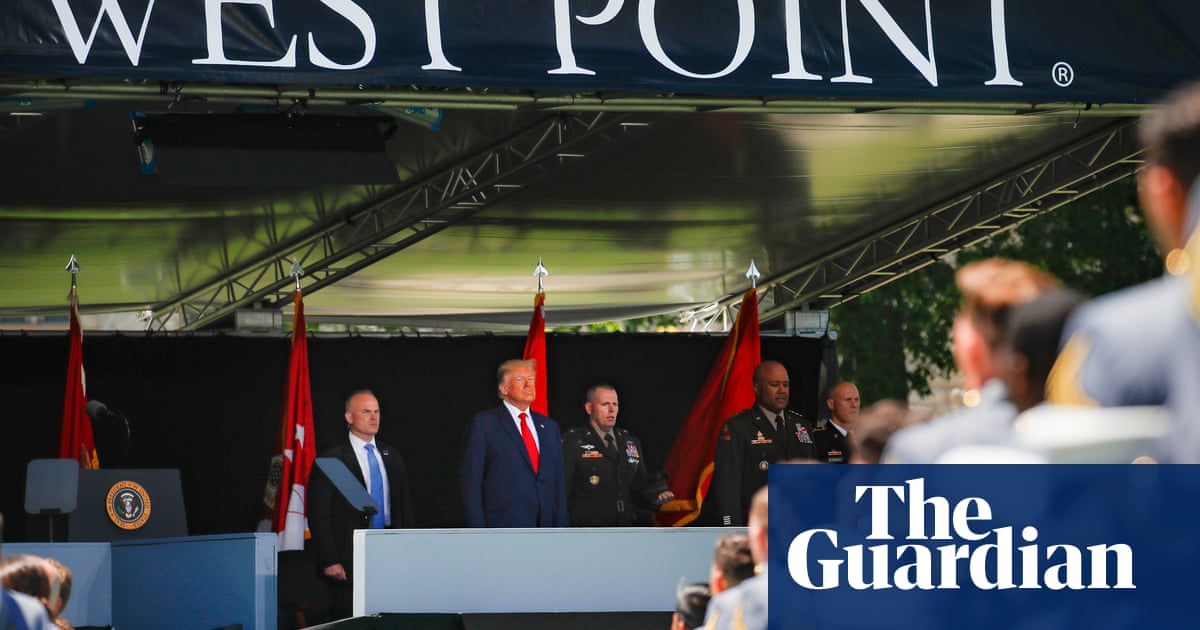Donald Trumpwill address graduates of West Point on Saturday, as his administration moves to implement a rightwing agenda at military service academies that has prompted the disbandment of student clubs, the removal of certain books and at least one faculty resignation.
It will be the second time Trump has spoken to graduates of the United States Military Academy in upstate New York where the next generation of army leaders is educated, and offers the president an opportunity to stump for his defense policy.
This week, Trump announced plans to spend $540bn over 20 years on the “Golden Dome”, a missile defense system intended to protect the United States from ground- and space-based weapon strikes. The project received an initial dose of funding fromthe “big beautiful bill”, a comprehensive piece of tax-and-spending legislation Republicans in the House of Representatives passed on Thursday after weeks of negotiations.
The army is alsogearing up for a paradethrough the streets of Washington DC, something Trump tried unsuccessfully to hold during his first term that is now billed as commemorating the force’s 250th birthday. Its 14 June date also happens to be the day Trump turns 79.
Themilitaryand its elite service academies have been affected by the wave of executive orders Trump has signed since taking office, as well as by the policies of Pete Hegseth, the former Fox News host he appointed to lead the defense department.
Trump’s sprawling order targeting diversity, equity and inclusion (DEI) programs across the federal governmentled West Point to disbandsome student clubs, including the Society of Women Engineers, the Latin Cultural Club and a third group serving the LGBTQ+ community. The defense department has told West Point and other schools tocomb their library stacksand remove any books or materials that may fall afoul of the DEI-related policy.
Earlier this month, Graham Parsons, a philosophy professor at West Point,resignedafter 13 years on the faculty, saying: “I am ashamed to be associated with the academy in its current form.”
The Times Herald-Record of Middletown, New York,reportsthat several protests are planned outside the campus for the president’s appearance, including one to take place on boats in the adjacent Hudson River.
Trumplast addressedWest Point graduates during the Covid-19 pandemic in 2020, when they wore masks and were spaced out in an effort to prevent transmission of the virus.
Earlier this month, he delivered the commencement speech at the University of Alabama in Tuscaloosa, where he alternated between offering the life advice typical of such speeches and harping on preferred talking points such as his baseless insistence that the 2020 election was rigged and his opposition to transgender athletes.
